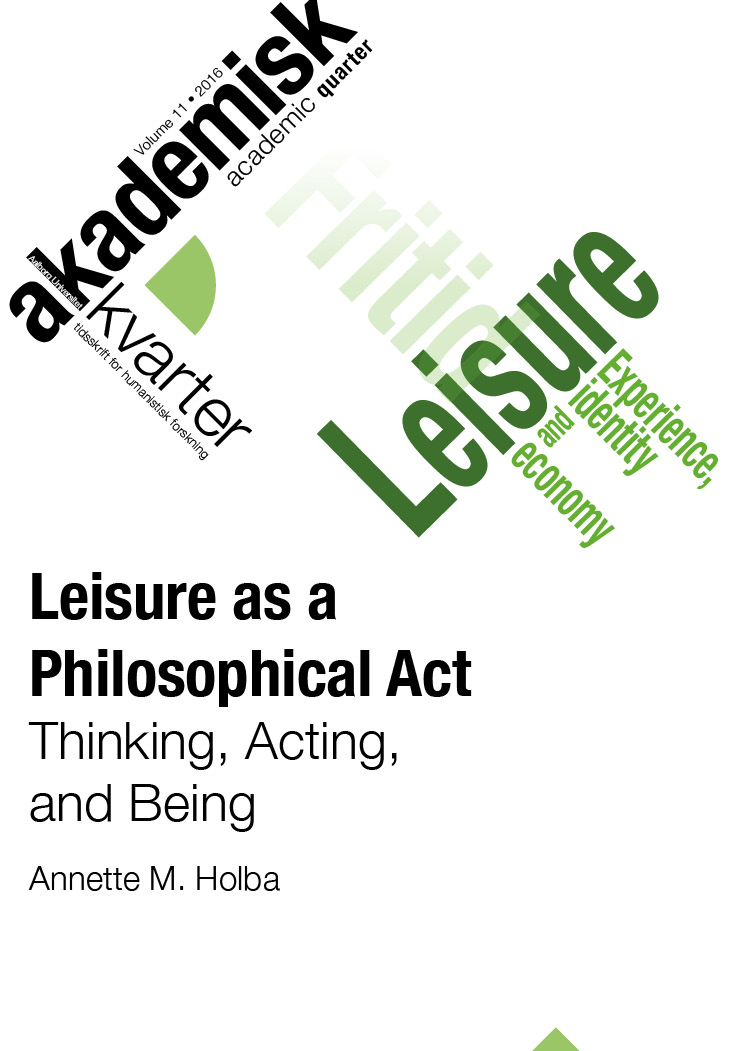Abstract | Abstract
Aristotle argued leisure was the first principle of all action; Thomas Hobbes suggested it was the mother of philosophy. Today leisure is more often associated with rest, relaxation, or idleness. These associations have contributed to a misunderstanding and lack of leisure. In our changing technological environment, leisure is overshadowed by a cult of speed where immediacy has replaced thoughtfulness and intentionality which poses communicative challenges to the human capacities of thinking, acting, and being. This essay suggests that reengaging leisure as a philosophical act, thus returning to its classical roots, provides recuperative possibilities for these challenges. Beginning with situating leisure as a philosophical act, then identifying the challenges that confront leisure, I demonstrate how leisure enables the necessary cultivation of thinking, acting, and being which provides recuperation of those human capacities even within our technological environment.
